Folks in my neighborhood have taken Halloween to a whole new level; it is incredible what a bit of technology will do for a holiday. Back in my time, we’d have a Casper mask with an elastic strap. Very hard to breathe in that thing, so you were forever lifting it up for a breath of fresh air. Moms gave away homemade popcorn balls and candy apples. You knew who was going to have the ‘good stuff’ (Milky Way bars were a favorite) and who to avoid (the elderly neighbor who thought handing out pennies was acceptable). Gone are those days – we’ve got big scary spiders climbing up the sides of houses, and tombstones with automated skeletons waving from the ground. According to the National Retail Federation, Americans spent close to 9 billion dollars on Halloween in 2018.
But, the origins of Halloween have little to do with candy and zombie costumes. Most of the ancient festivals associated with Halloween had to do with the harvest and magic. The Halloween that we celebrate today didn’t arrive along a single path; it is a combination of traditions that tie transitioning seasons to the thin layer between life and death. All of these traditions, the broomstick, the apples, the witches, have ancient roots. No image of Halloween is complete without witches and broomsticks, and when it comes to witches, we need to talk about HERBS!
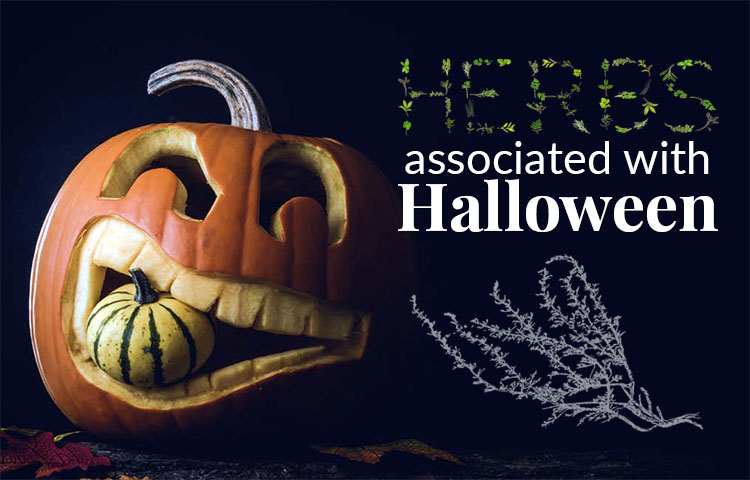
“Trefoil, vervain, John’s wort, dill
Hinder witches of their will”
Artemisia (Mugwort) – this herb was believed to protect a person against evil spirits, and it was said that St. John the Baptist wore a girdle of Mugwort into the wilderness. Considered a visionary herb, Artemisia is also associated with divination and dreaming. The perfect herb to provide extra protection and cast out demonic possession. Make a protective sachet by filling a small bag with dried Artemisia.
Sage – a plant associated with many attributes: wisdom, protection, purification, immortality. Used by many to promote wisdom and bring good luck, it is said that carrying a sage leaf in your pocket will attract money! This herb appears in many spells, and is supposed to be a useful ingredient in cleansing and purifying magical tools. A great herb to banish negativity and attract positive energy.
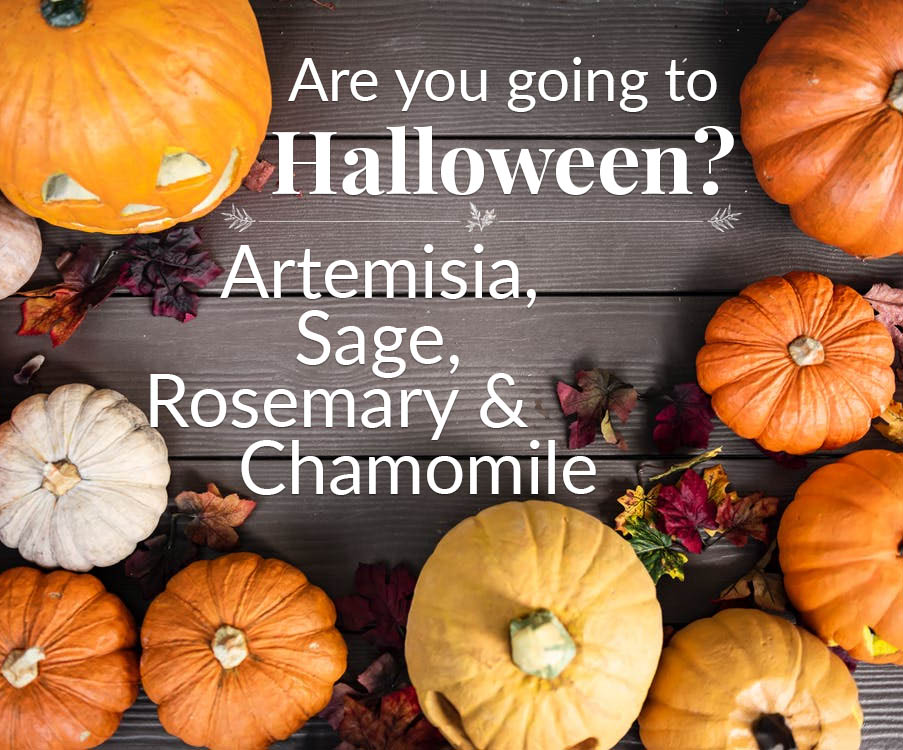
Rosemary – one of our favorites, and we were happy to learn it was widely used in spells to promote fidelity! Also for remembrance, bathing in rosemary water is a means of enhancing memory. Ritual baths were also used as a means of blessing and purification. Burning rosemary while meditating is said to help remember past lives. A bundle of rosemary is a great way to keep harmful people and negative energy from entering your home.
Chamomile – this herb is considered to be an herb of purification and protection. Try sprinkling or planting chamomile around your home to ward off psychic or magical attacks. It will also keep negativity from entering! Chamomile helps promote dreamwork and is used as a sedative to help with sleep and meditation. Considered ‘Lucky Flower,’ a garland of Chamomile will help attract a suitor or good luck!
St. John’s Wort – an herb well known for its medicinal properties, it is also valued as a protection against evil, banishing evil spirits and bad luck. St. John’s Wort worn around the neck was said to prevent fevers and encourage good luck. Young women, during the Feast of St. John, would hang the herb on a bedroom wall or put under a pillow to dream of her future husband. Combined with other potent herbs, St. John’s Wort was added to amulets and talismans for protection.
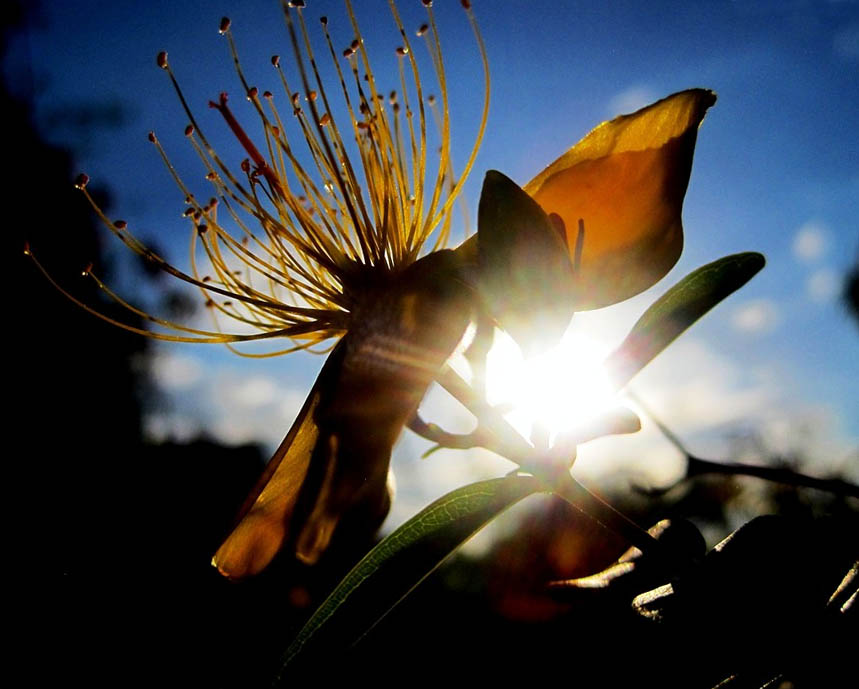
In all of the historical references for these ‘magic herbs,’ there are a few central themes. Warding off evil spirits and negativity. Encouraging wisdom and protection. Finding love. It’s not hard to imagine the sources of these desires, as living in a world where anything could go wrong at any time, you’d need to cope with the uncertainty. There is a human need to ‘do something,’ and herbal concoctions, spells, and rituals were the means by which humans tried to control their uncertainty. We’d never imply that these weren’t effective, as so much of the ritual and intent is tied to the healing properties of these herbs. So, whether you need to purify your space or ward off negative energy, herbs are certainly a consideration as they’ve been in the human toolbox for a very long time!
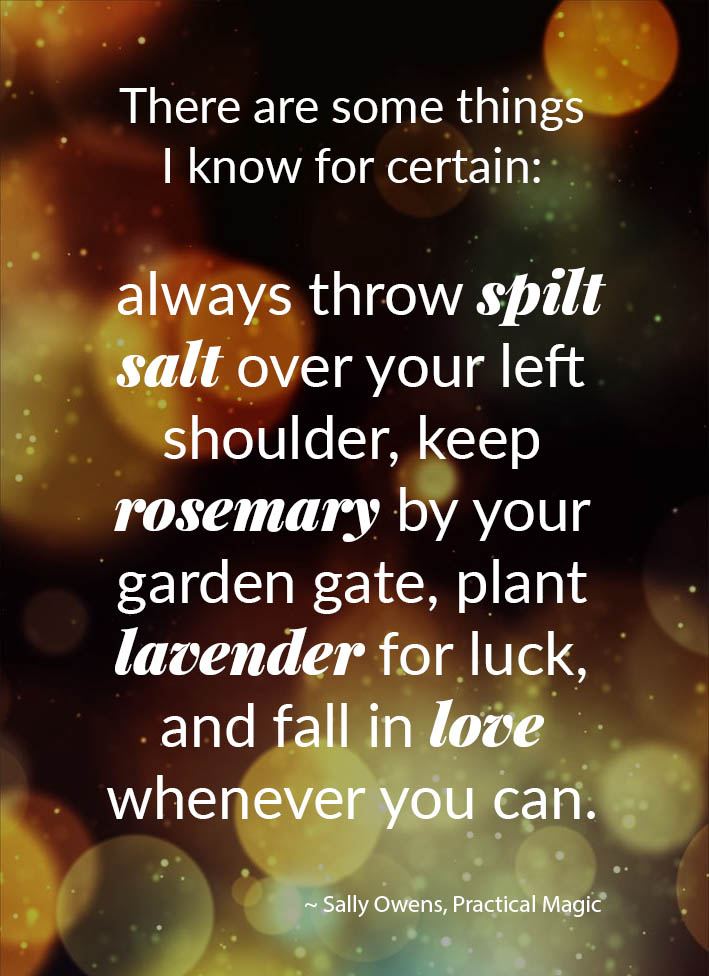
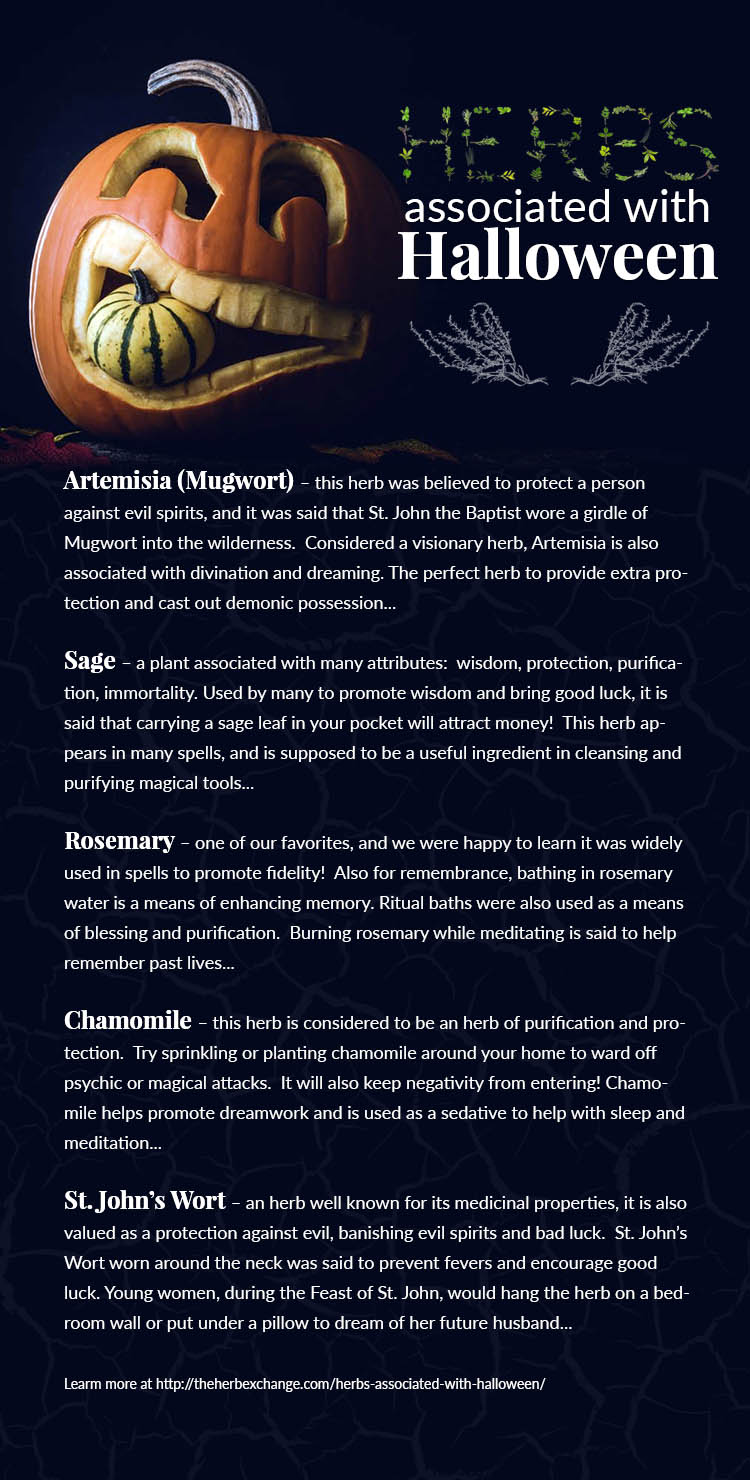


Interesting and timely blog post on Halloween herbs. I’d like to do some further research on this……. what are your source documents please?
Thank you for the wonderful reminders for sanhaim.
Using herbs to “prevent negativity from entering” one’s home, etc. is superstitious crap. I cannot believe you are promoting this. Please take my name and email off your list. Thank you.
Blessed Be! Ann Hagen
Superstitious crap is part of the fun. It’s a shame that some people are so close minded that they would want to be removed from a very informative gardening list simply because of one light- hearted Halloween themed article.
As some might say-there may be a thread of truth in the origins of superstition! There are many curative herbs-modern medicine and science have extracted many compounds from plants to make modern medicines! Happy Halloween!
I enjoyed this light hearted article!
Great article with good historical significance! Thanks for sharing your knowledge.
I just love all the fun we have. Keep up the good work !!
Well, let’s see… I’ve used mugwort to banish the evil deeds of clothing chewing moths, and chamomile has been used in my family for casting good spells on a bad stomach via a steaming cup of brew, and sage always helped me with expelling the curse of a headache. And aromatic rosemary? What would the bewitching lure of Italian cooking be without it!
Whether the use of herbs are in the bedroom (in the winter my grandmother would heat a stone in the kerosene stove, wrap it in a towel with herbs, and put it at the foot of our mattress to help us sleep), in the bathroom (an essential oil in lotion or hand made soaps, or the medicine cabinet…), or in the kitchen (obvious), herbs have been used for millennium. To that end, “The charm of a rose belies the curse of the thorn that does us harm.”
Thank you for sharing the historical uses of these herbs! They were certainly useful in the medicine box and still useful today. Chamomile, sage and rosemary are a few of my favorites.